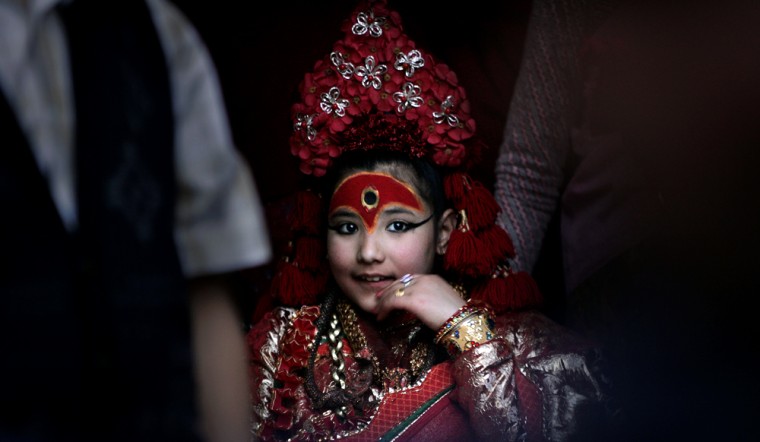Nepal's Supreme Court has ordered the government to ensure basic health care and education for virgin girls worshipped as "living goddesses" in a centuries-old tradition in the Himalayan nation.
A few children, some as young as three or four, in the Kathmandu valley are picked by Buddhist priests as kumaris, or "living goddesses." They are then confined to temples until puberty, visited by thousands of devotees.
Critics say the tradition violates the children's rights and leaves them unprepared to face real life when they return to their families after reaching puberty.
"A directive order has been issued to the government to provide basic human rights, including education and health (care) to the child," Supreme Court spokesman Hemanta Rawal said on Tuesday.
"This means the child's rights can't be violated in the name of culture," he said. The ruling was made on Monday, he said.
Nepal this year became a republic after lawmakers abolished the Himalayan nation's centuries-old monarchy. Many cultural traditions are being changed or challenged as modernity gradually arrives in one of the world's poorest countries.
A former Maoist rebel leader was sworn in as Nepal's first prime minister on Monday.
The court has ordered the government to submit a detailed report within one year about the reforms and facilities provided to former kumaris, as well as existing ones.
Even some Nepali Hindus worship the kumari, who is considered an embodiment of Taleju Bhavani, the goddess of strength.
Life as a 'goddess'
The main "goddess" lives in an elaborately carved wood-and-brick temple in Kathmandu.
During festivals the girls, dressed in red-and-gold colored costumes, are carried in a wheeled, wooden chariot pulled by men through the capital.
In the past the kings of mainly Hindu Nepal also sought the blessings of the kumaris.
With a third eye painted on her forehead, the kumari appears at a carved window to greet foreign tourists from a distance.
Those who support the tradition say parents are free to decide whether to let their daughters serve as kumaris, saying the girls get state allowances and are well taken care of.
